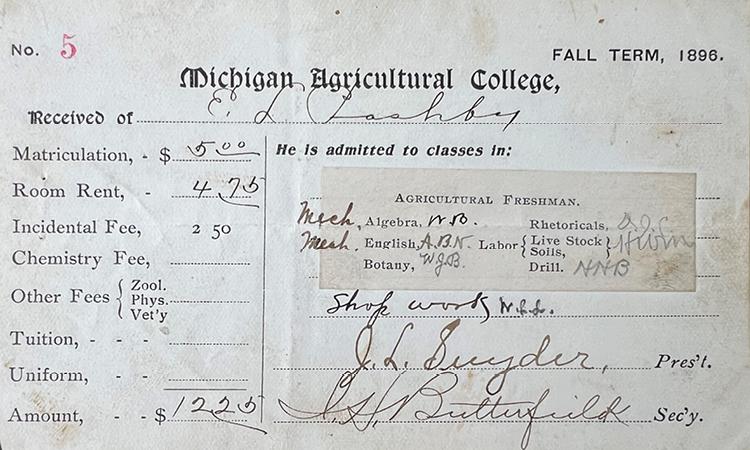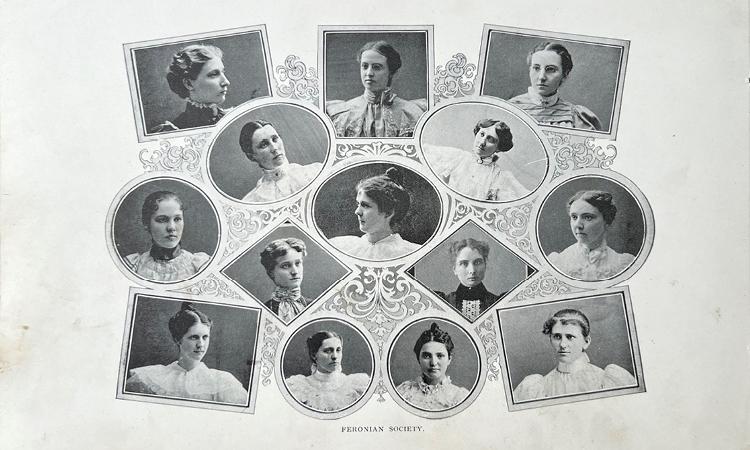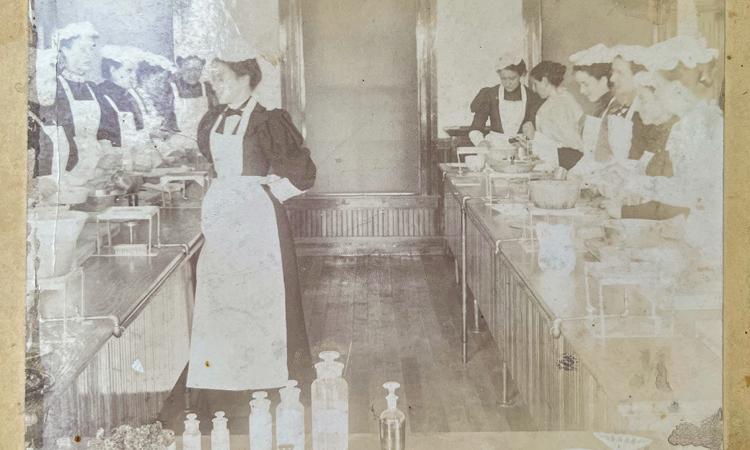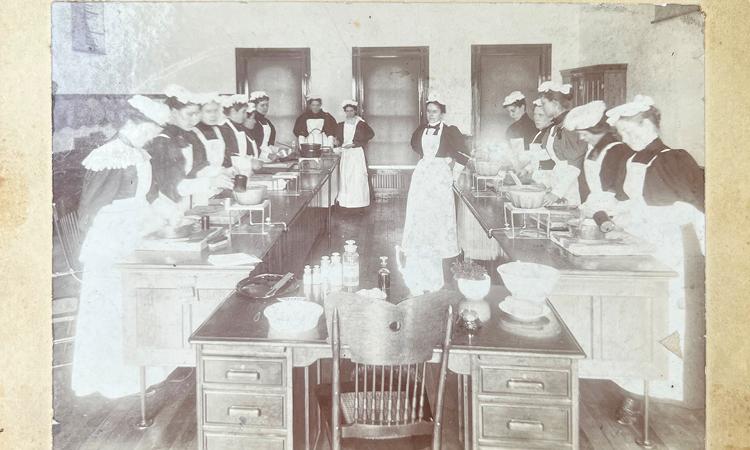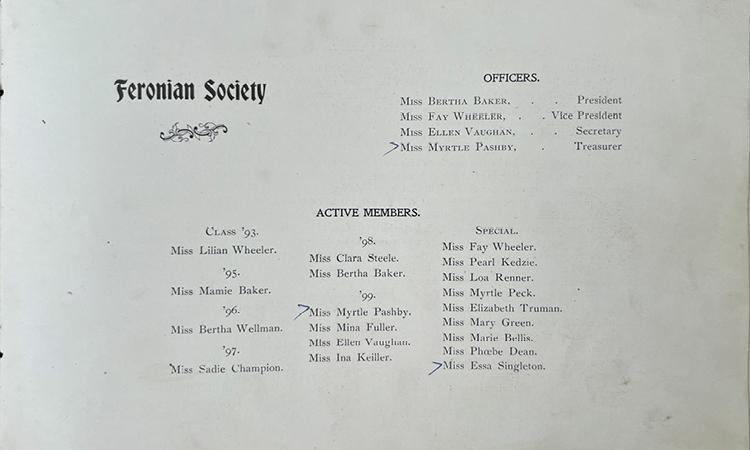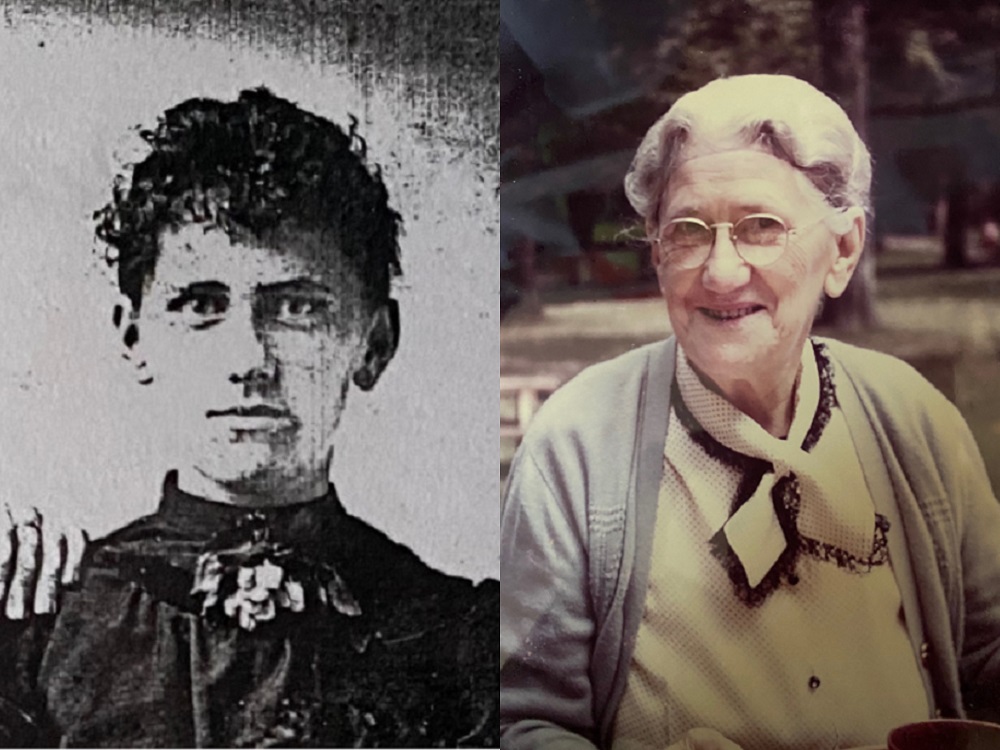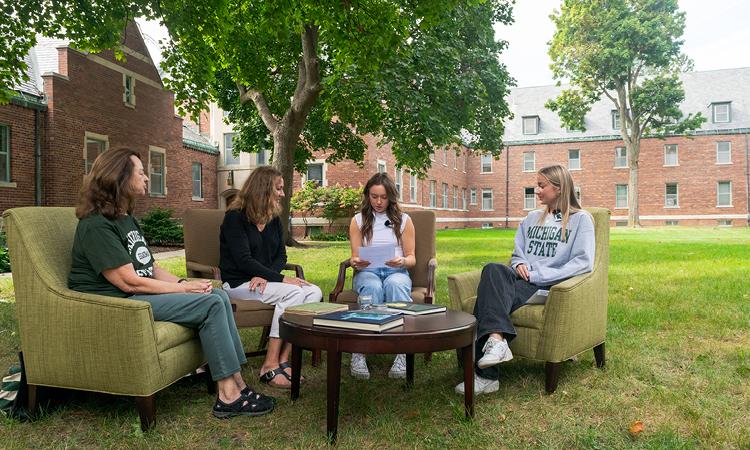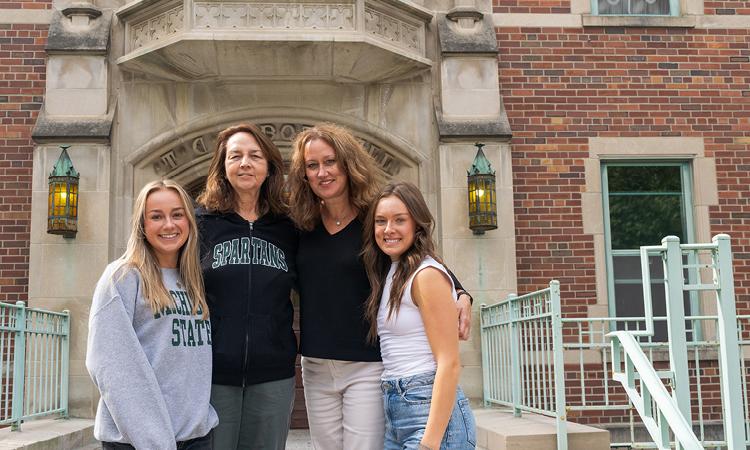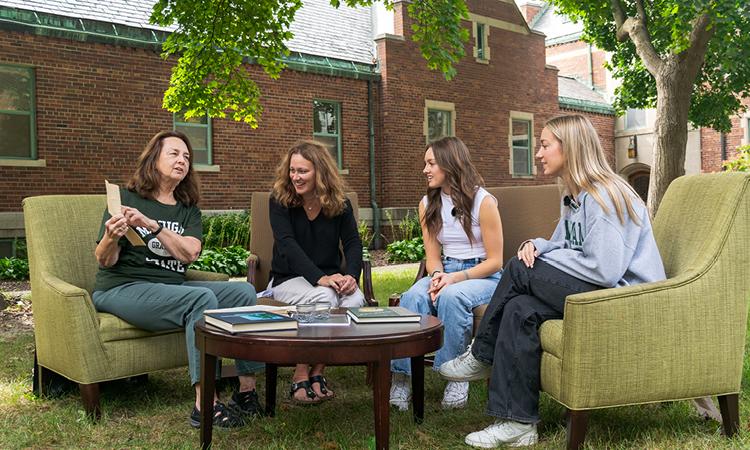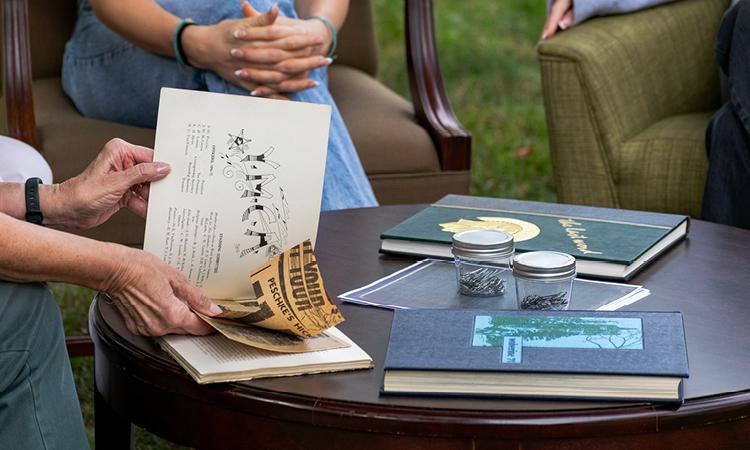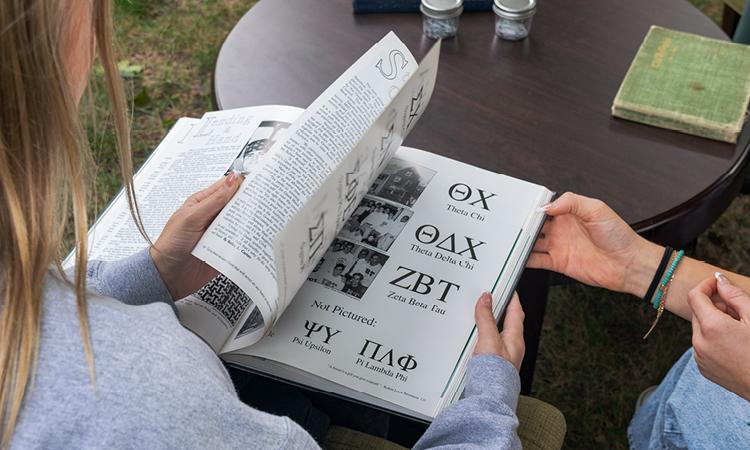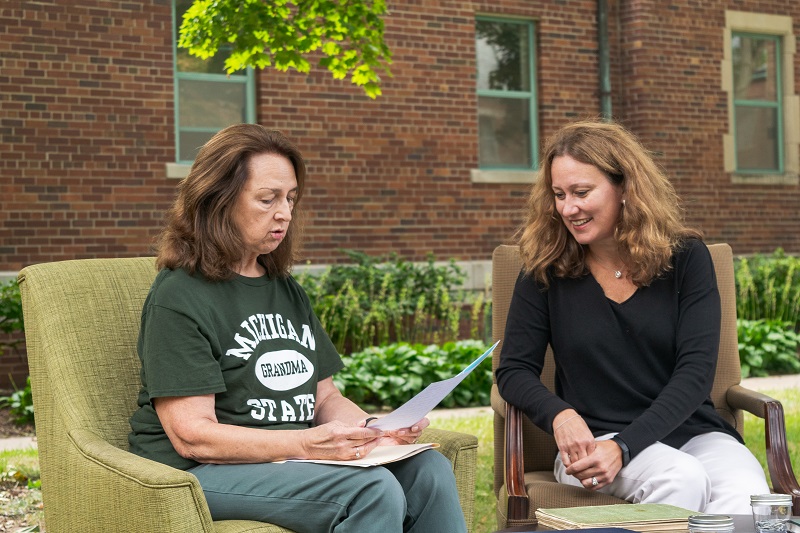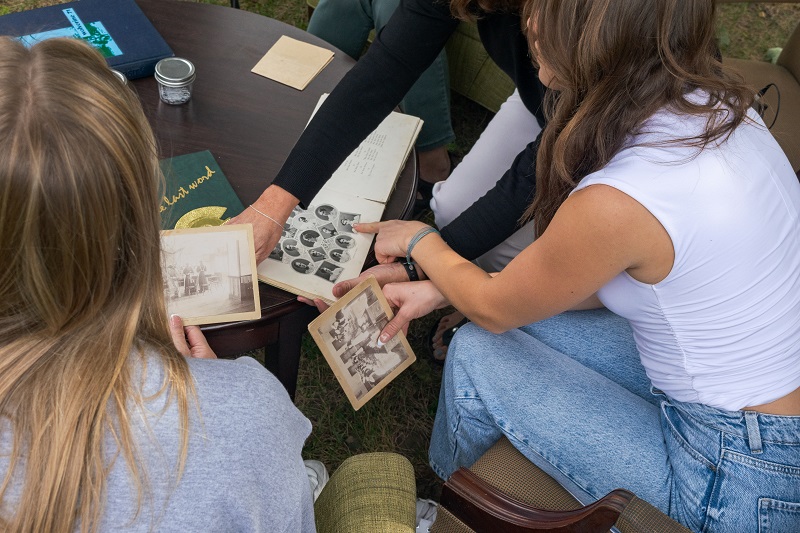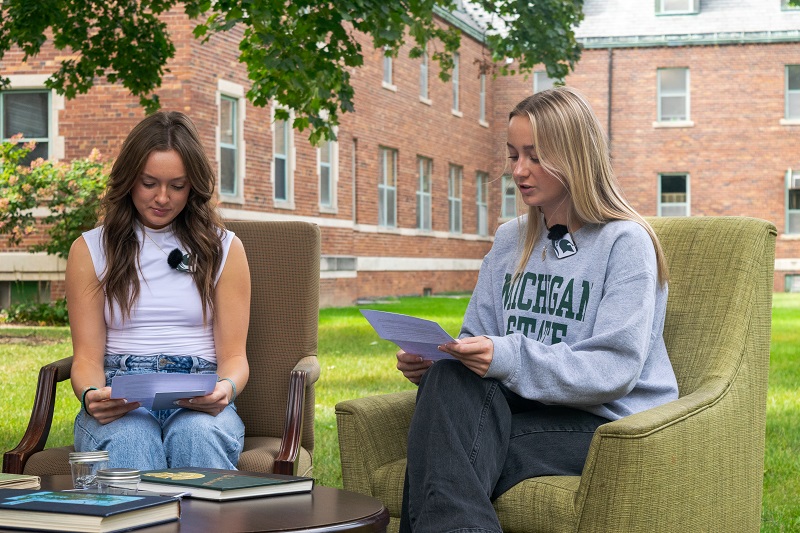At 18 years old, Toni Hartke was given a yearbook.
Olive green and loosely bound, the cover was simple and unremarkable, offering little description of its contents. Stamped into the upper right corner were cryptic words: “Heliostat” in fading gold letters, and “M.A.C. 1896” in smaller type below. Already it was showing its age. Inside was a window to a bygone era—dated sepia photographs and choppy type on brittle pages wearing to a pale yellow at the edges.
The yearbook was a gift from Toni’s great-grandmother meant to celebrate her upcoming adventure as a student at Michigan State University. Old as it was, Toni could hardly hide her excitement and her surprise.
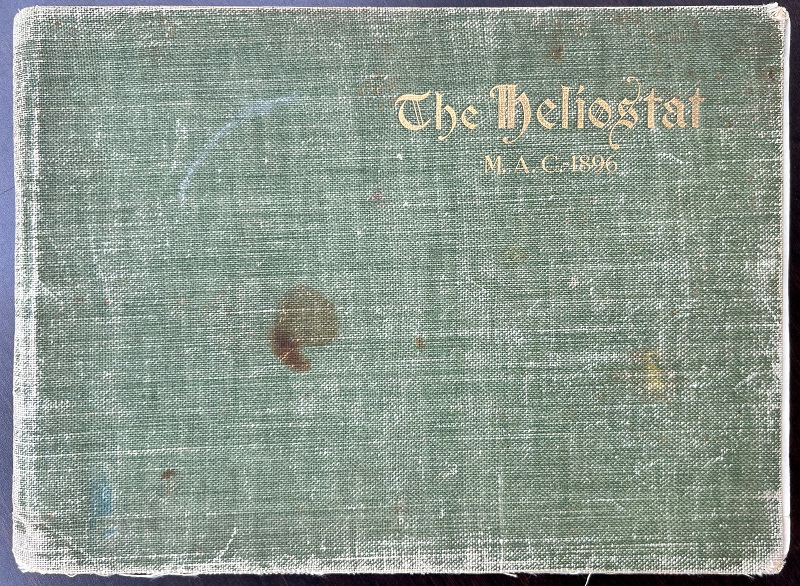
Toni’s ambition pushed her to enroll at MSU in 1967. Neither her mother nor her grandmother attended college, and they celebrated Toni’s decision to break barriers. Toni was a trailblazer—a goal-oriented woman in a world still in many ways administered by men. She dreamed of being a writer, a reporter dependent on her guile and creativity to make a difference in the world.
The biggest supporter in Toni’s corner was her great-grandmother, Essa Singleton Pashby. An uncommon connection existed between the two women born in drastically different eras over 70 years apart.
“We had a very close relationship,” Toni says. “I was very fortunate. I knew almost all my great-grandparents, which was very unusual. Some people don’t even know their grandparents let alone their great-grandparents.”
Essa’s gift unveiled a new truth. There was more that connected them than Toni imagined.
Once upon a time, Essa was a student at Michigan Agricultural College—later known as Michigan State University. A trailblazer of her own, she was one of the first students in MAC’s nascent women’s program created in 1896 to provide dedicated instruction in the domestic arts.
“I was shocked,” Toni says. “She didn’t really have a lot to give me for graduation, but the yearbook meant a lot to her, and it really was the most meaningful thing I could’ve ever gotten. I asked how I had never heard that story, and, apparently, she just didn’t think it was significant.”
The yearbook revealed to Toni a new side of her great-grandmother and also a new side of herself. More than just a collection of memories, the book was a confirmation of Toni’s courage, a testament to her tailored trajectory, and a glimpse into both her past and future.
For the past 60 years, the yearbook has remained Toni’s most cherished possession. The book’s meaning has only grown over time, becoming a symbol for her family’s long legacy—a legacy that is deeply rooted at Michigan State.
Four generations. Three centuries. All Spartan.
